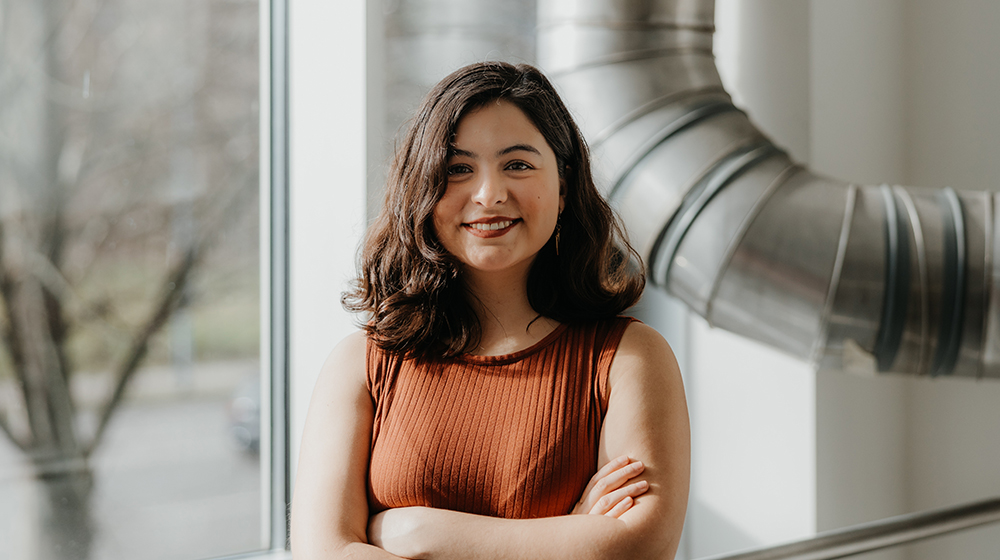
A new technical degree programme started at the University of Magdeburg in the winter semester 2023/24. With a Master's degree in Computational Methods in Engineering, future graduates will be able to work in professional fields such as automotive engineering, mechanical engineering or medical technology.
Gabriela Medina is one of the students on the first year of the new Master's programme. She moved from Mexico to Magdeburg a few months ago for the programme. The 27-year-old had already completed a Bachelor's degree in mechanical engineering in her home country and then worked in engineering offices for several years. Nevertheless, a Master's degree was firmly on her agenda. Gabriela applied for a total of four different degree programmes in Germany, but her choice ultimately fell on Magdeburg. "I didn't know much about the city itself at first, but I really liked the Master's programme on offer. Compared to other universities, this one is also very international," says the student. She was also particularly impressed by the new degree programme's focus on technical simulations.
Students of Computational Methods in Engineering at the University of Magdeburg are familiarised with future-oriented technologies and can then work as specialists for simulations of complex technical problems at the interfaces between mechanical engineering, process engineering, electrical engineering, computer science and mathematics. In this way, they build a bridge between the classic engineering disciplines, mathematics and computer science as well as software development. This knowledge becomes relevant in simulations such as crash tests, in aeronautical engineering or in the development of prostheses and implants.
For Gabriela, the Master's programme is exactly what she was looking for. "For me, it was like the next step in everything I had learnt in my Bachelor's degree," she reports. In the first semester, she mainly focussed on advanced numerical methods and how different objects react to different loads over certain periods of time. Computer-aided techniques can be used to simulate this, whereby cooperation between humans and machines is particularly important. Gabriela explains: "We can simulate almost anything, that's the beauty of it. Of course, the computer itself does not understand its environment, but if we model everything well enough, it can learn it". In order to provide the simulation programme with sufficient data, meticulous experiments in practice are required in advance to determine how different materials behave under stress.
As the first year of the new degree programme, there is no one from a higher semester who could be available to answer questions. But the students are all the more supportive of each other, says Gabriela. In addition to her studies, she particularly likes the intercultural student organisation at the University of Magdeburg (IKUS for short), which supports international students with many events and services and helps them to organise their day-to-day studies.
After completing her Master's degree, she can well imagine staying here in Germany and taking advantage of the wide range of career opportunities. She particularly recommends Computational Methods in Engineering to engineers who are interested in modelling new simulations or in research. "I would also be very happy to see even more women in this promising field in the future," says Gabriela.
